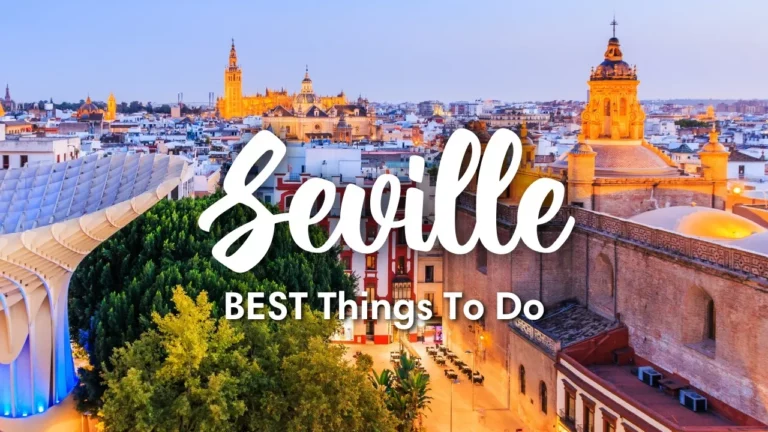Seville, the capital of Spain’s Andalusia region, is the birthplace of flamenco, a passionate and soulful art form that combines singing, dancing, and guitar. This city is a cultural treasure trove where flamenco is not just a performance but a way of life. For those looking to immerse themselves in its rhythm, energy, and history, Seville offers a wealth of experiences. Whether you’re a seasoned flamenco enthusiast or a curious traveler, the city’s vibrant streets, tablaos (flamenco venues), and festivals promise an unforgettable journey into this art form.
Here is a numbered guide to the best things to do in Seville for an authentic flamenco experience. Each point captures an essential aspect of flamenco culture while highlighting the best ways to enjoy it in this enchanting city.
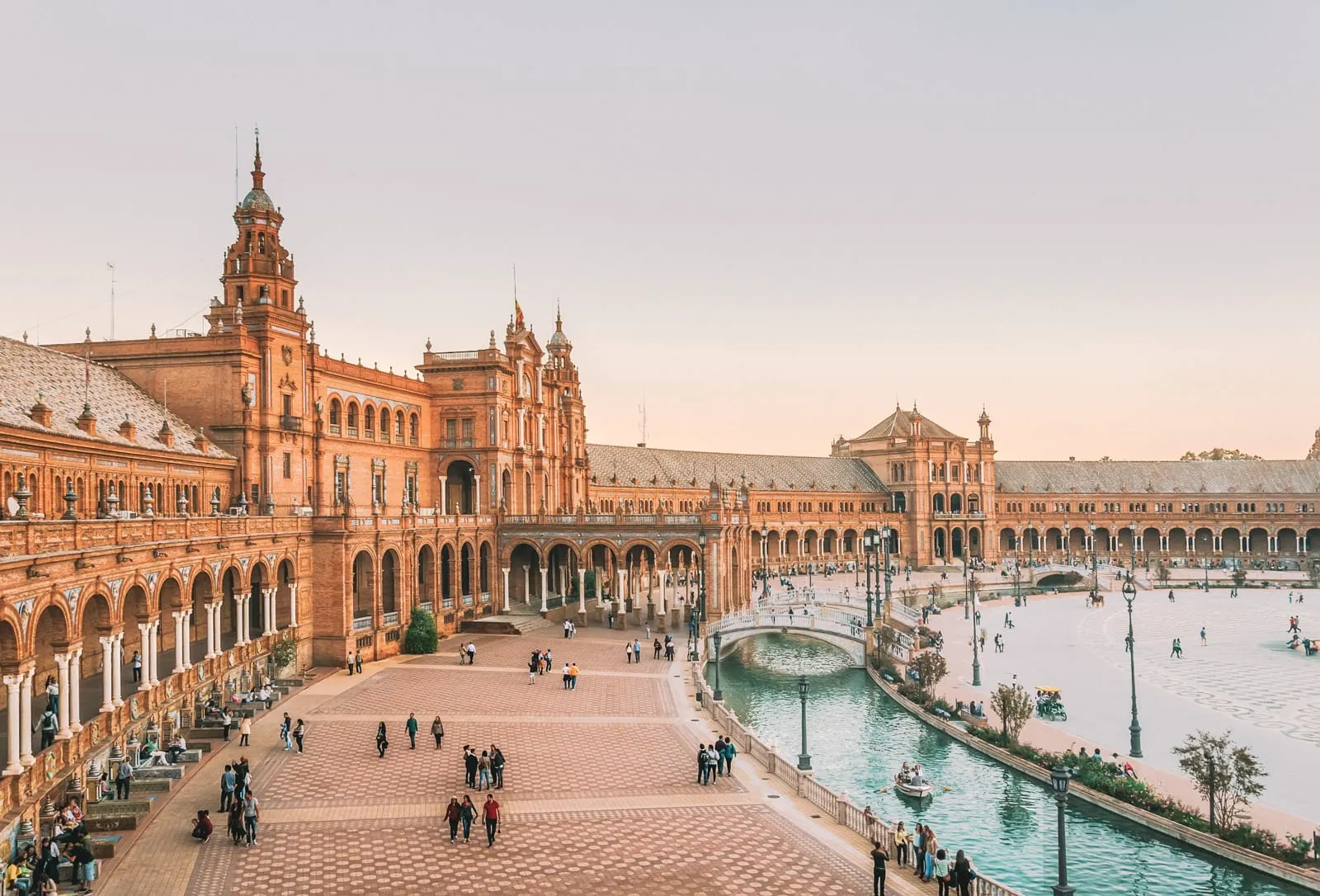
1. Watch a Live Flamenco Performance at Casa de la Memoria
Casa de la Memoria is one of the most famous flamenco venues in Seville, known for its intimate performances by talented artists. Located in a beautifully restored 15th-century building, the shows here emphasize traditional flamenco without flashy distractions. The seating arrangement ensures every guest has a close-up view of the dancers’ intricate footwork and the musicians’ heartfelt expressions. Performances at Casa de la Memoria are deeply authentic, focusing on the purity of the art form. It’s an ideal starting point for those new to flamenco or seeking a genuine cultural experience.
2. Explore Flamenco History at the Museo del Baile Flamenco
Founded by renowned flamenco dancer Cristina Hoyos, this museum is a must-visit for anyone wanting to understand the history and evolution of flamenco. Interactive exhibits showcase flamenco’s roots in Andalusian culture, including its Moorish, Gypsy, and Jewish influences. Visitors can enjoy displays of traditional costumes, audiovisual presentations, and archival recordings of legendary performers. The museum also hosts daily live performances, giving guests a chance to see flamenco in action. Its blend of education and entertainment makes it a standout attraction in Seville.
3. Take a Flamenco Dance Class
To truly appreciate flamenco, why not try it yourself? Several dance studios in Seville offer classes for beginners and seasoned dancers alike. Experienced instructors guide students through the basic steps, hand movements, and rhythmic clapping (palmas) that define flamenco. Participating in a class helps you understand the effort and passion required to master this art form. It’s also a fun way to engage with Seville’s culture and meet fellow travellers. Many studios, such as Taller Flamenco and Flamenco Dance Academy, welcome walk-ins and short-term participants.
4. Stroll Through Triana, the Heart of Flamenco Culture
Triana, a historic neighbourhood across the Guadalquivir River, is considered the heart and soul of flamenco in Seville. Its narrow streets are lined with colourful buildings, tapas bars, and artisan shops, many of which sell flamenco-related items like castanets and dresses. Triana is also home to several tablaos and peñas (flamenco clubs) where locals gather to perform and celebrate this art form. A stroll through Triana offers a glimpse into the authentic, grassroots flamenco culture that has thrived here for centuries.
5. Enjoy a Tablao Flamenco Show at El Arenal
El Arenal is one of Seville’s most prestigious tablaos, offering high-quality flamenco performances in a sophisticated setting. The venue’s cozy ambiance and exceptional acoustics create an immersive experience, making every clap, strum, and stomp resonate deeply. The shows feature a rotating lineup of renowned dancers, singers, and guitarists, ensuring that each visit offers something unique. Guests can also enjoy traditional Andalusian cuisine during the performance, combining fine dining with cultural entertainment.
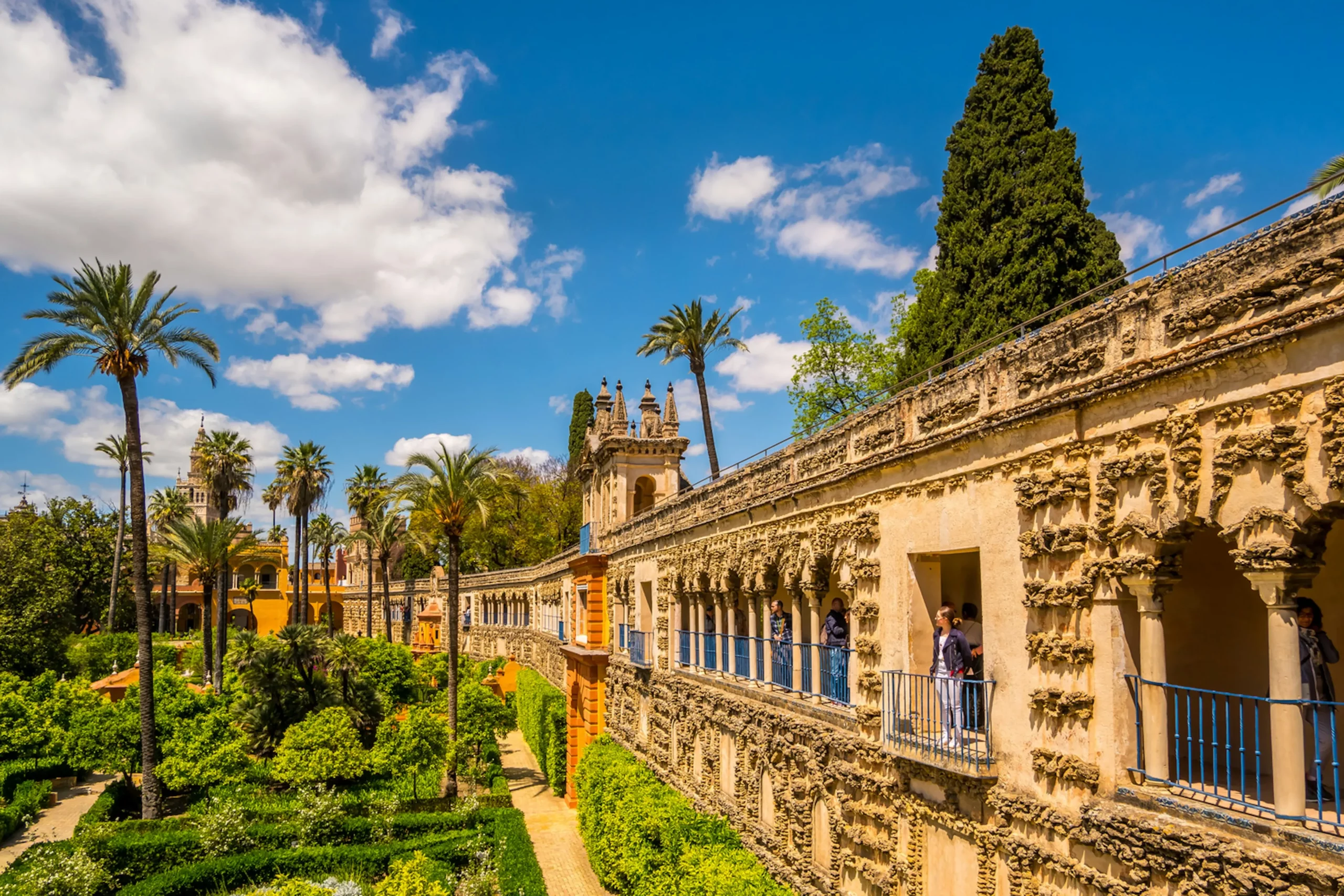
6. Visit the Barrio de Santa Cruz for Street Flamenco
The charming streets of Barrio de Santa Cruz, Seville’s old Jewish quarter, come alive with impromptu flamenco performances. This neighborhood is full of hidden squares, narrow alleys, and historic landmarks, providing the perfect backdrop for flamenco. Street performers often gather in plazas like Plaza de Doña Elvira, showcasing their skills to passersby. Watching flamenco in this open-air setting is a raw and authentic experience, bringing you closer to the art’s spontaneous spirit.
7. Attend the Bienal de Flamenco Festival
Held every two years, the Bienal de Flamenco is the world’s largest flamenco festival and a highlight of Seville’s cultural calendar. This month-long event features performances by some of the biggest names in flamenco, as well as emerging artists. Concerts take place at iconic venues such as the Maestranza Theatre and the Real Alcázar gardens. In addition to traditional shows, the festival includes experimental performances that push the boundaries of flamenco. Attending the Bienal is a once-in-a-lifetime experience for flamenco lovers.
8. Discover Flamenco Fashion at Local Boutiques
Seville’s flamenco fashion is as expressive and colorful as the dance itself. Shops like Lina and Cristina Heeren specialize in flamenco dresses, shawls, and accessories that capture the essence of Andalusian style. Visitors can browse an array of intricately designed garments adorned with ruffles, polka dots, and bold colors. Even if you don’t plan to buy, exploring these boutiques is a fascinating way to learn about flamenco’s visual artistry. Many shops also sell traditional accessories like fans and castanets, making for unique souvenirs.
9. Experience Late-Night Flamenco at Peña Cultural Flamenca Torres Macarena
For a more intimate and local flamenco experience, head to Peña Cultural Flamenca Torres Macarena. This venue is known for its informal yet electrifying performances that often go late into the night. Unlike commercial tablaos, peñas focus on preserving the authentic spirit of flamenco, offering a glimpse into its community-based roots. Here, you’ll find passionate artists and audiences who share a deep love for the art form. It’s a chance to connect with Seville’s flamenco culture on a personal level.
10. Savor Tapas While Enjoying Flamenco at La Carbonería
La Carbonería is a hidden gem in Seville’s flamenco scene, combining live performances with a laid-back atmosphere. This quirky venue offers free flamenco shows alongside a menu of delicious tapas and drinks. It’s an excellent choice for travelers who want to experience flamenco without the formality of a traditional tablao. The venue’s rustic charm and friendly vibe make it a favorite among locals and tourists alike.
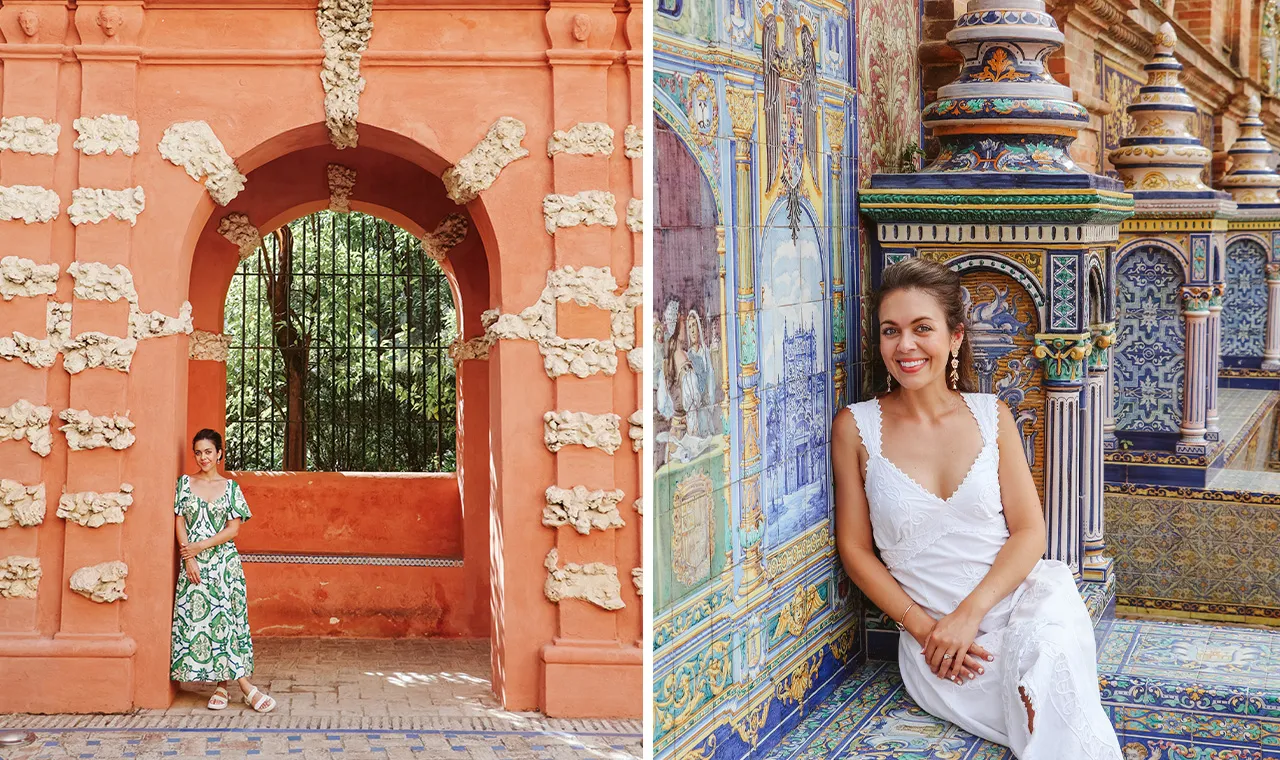
11. Discover the Roots of Flamenco at Casa Anselma
Casa Anselma, a beloved venue in the Triana neighborhood, is famous for its late-night flamenco sessions. The performances here are intimate and authentic, featuring locals who sing, dance, and play with raw passion. Casa Anselma stands out for its traditional atmosphere, where the audience often joins in clapping and singing along. The venue doesn’t follow a strict schedule, adding an element of spontaneity that captures the essence of flamenco. It’s a perfect spot for those seeking an unfiltered glimpse of Seville’s flamenco culture.
12. Admire Flamenco-Inspired Art at Galería Roja
Flamenco’s influence extends beyond music and dance, inspiring visual artists to capture its vibrant spirit. Galería Roja, a contemporary art gallery in Seville, often features exhibitions dedicated to flamenco themes. From paintings and photographs to sculptures and mixed media, the artwork here celebrates the movement, emotion, and colors of flamenco. Visiting the gallery offers a unique perspective on how this art form transcends boundaries and continues to inspire creative expression.
13. Attend a Flamenco Guitar Recital at Iglesia de San Luis de los Franceses
Flamenco guitar is an essential element of the art form, adding rhythm and melody to the performances. Iglesia de San Luis de los Franceses, a stunning Baroque church, hosts flamenco guitar recitals that are as visually mesmerizing as they are aurally captivating. The acoustics of the church amplify the intricate melodies, creating an almost spiritual experience. Listening to a master guitarist in this serene setting provides a deeper appreciation of the technical skill and emotional depth involved in flamenco.
14. Experience Fusion Flamenco at Tablao Flamenco Los Gallos
For a modern twist on traditional flamenco, visit Tablao Flamenco Los Gallos. Established in 1966, this venue is one of the oldest in Seville and has evolved to showcase both classic and contemporary styles. Performers here often blend flamenco with other musical genres, creating innovative and dynamic shows. The venue itself exudes charm, with its cozy interior and attentive staff ensuring an unforgettable evening. It’s an excellent choice for those looking to experience the evolution of flamenco.
15. Learn Flamenco Rhythms at a Percussion Workshop
Flamenco is as much about rhythm as it is about movement, and percussion workshops offer a hands-on way to explore its intricate beats. These classes teach participants to play the cajón (a box-shaped percussion instrument) and master the palmas (hand clapping) that define flamenco’s rhythm. Workshops are usually led by experienced percussionists who break down complex rhythms into manageable steps. By learning the foundational beats, you’ll gain a deeper understanding of how rhythm drives the energy and emotion of flamenco.
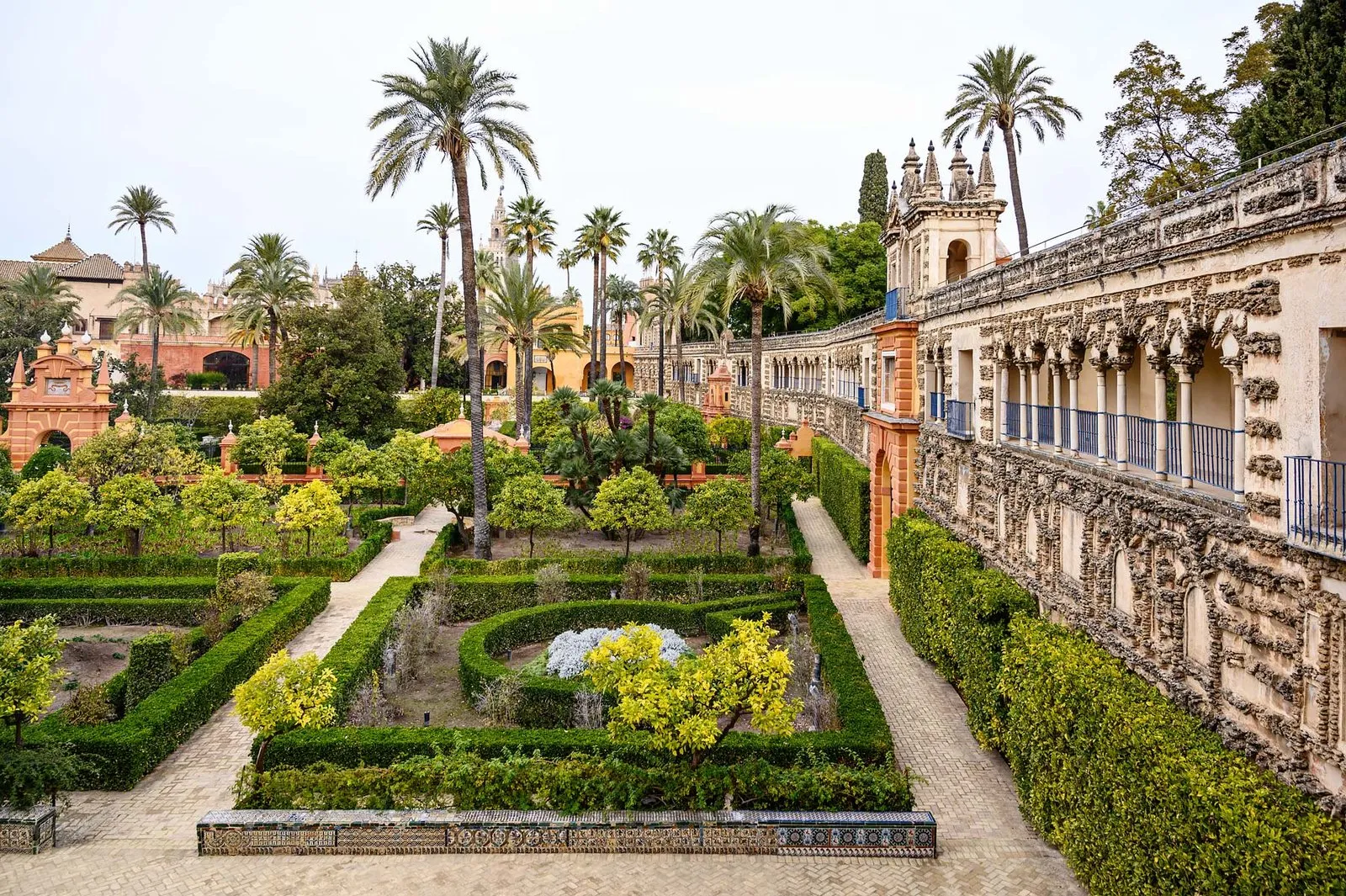
16. Watch a Flamenco Film Screening at CineZona
Flamenco’s dramatic essence has inspired numerous films that explore its beauty, history, and cultural impact. CineZona, an independent cinema in Seville, frequently hosts flamenco-themed film screenings. These films range from documentaries about iconic performers to fictional stories that incorporate flamenco as a central theme. Watching a flamenco film provides context for the art form, showcasing its enduring influence on storytelling and cinema. It’s an enriching experience for film and flamenco enthusiasts alike.
17. Indulge in Flamenco-Inspired Cuisine at Espacio Eslava
Seville’s culinary scene often draws inspiration from its cultural heritage, and Espacio Eslava is a prime example. This renowned tapas bar offers dishes that reflect the passion and vibrancy of flamenco, using bold flavors and innovative presentations. Popular menu items like honey-glazed ribs and seared scallops are designed to evoke the intensity of a flamenco performance. Pairing these dishes with Andalusian wine creates a multisensory experience that celebrates the region’s rich culture.
18. Visit the Alcázar Gardens for Open-Air Flamenco
The Real Alcázar gardens, with their lush greenery and historic architecture, occasionally host flamenco performances under the stars. These events combine the grandeur of the surroundings with the intimacy of live flamenco, creating an unforgettable experience. Performers often draw inspiration from the setting, incorporating the natural ambiance into their routines. Attending a show in the Alcázar gardens is a magical way to connect with flamenco’s connection to Andalusian history and nature.
19. Experience Underground Flamenco at La Sala X
For a more contemporary and experimental take on flamenco, visit La Sala X. This underground venue showcases avant-garde flamenco performances that push the boundaries of tradition. Musicians and dancers collaborate to blend flamenco with electronic music, jazz, and modern dance styles. The result is a thrilling fusion that appeals to a younger, adventurous audience. La Sala X is perfect for those who want to see how flamenco continues to evolve in the hands of innovative artists.
20. Join a Flamenco Jam Session at Café del Arte
Café del Arte hosts weekly flamenco jam sessions where musicians and dancers come together to improvise. These gatherings are less formal than traditional shows, fostering a sense of community and creativity. Audiences can expect spontaneous collaborations, raw energy, and plenty of surprises. Joining a jam session is a great way to witness the collaborative spirit of flamenco and see how artists feed off each other’s energy in real-time.
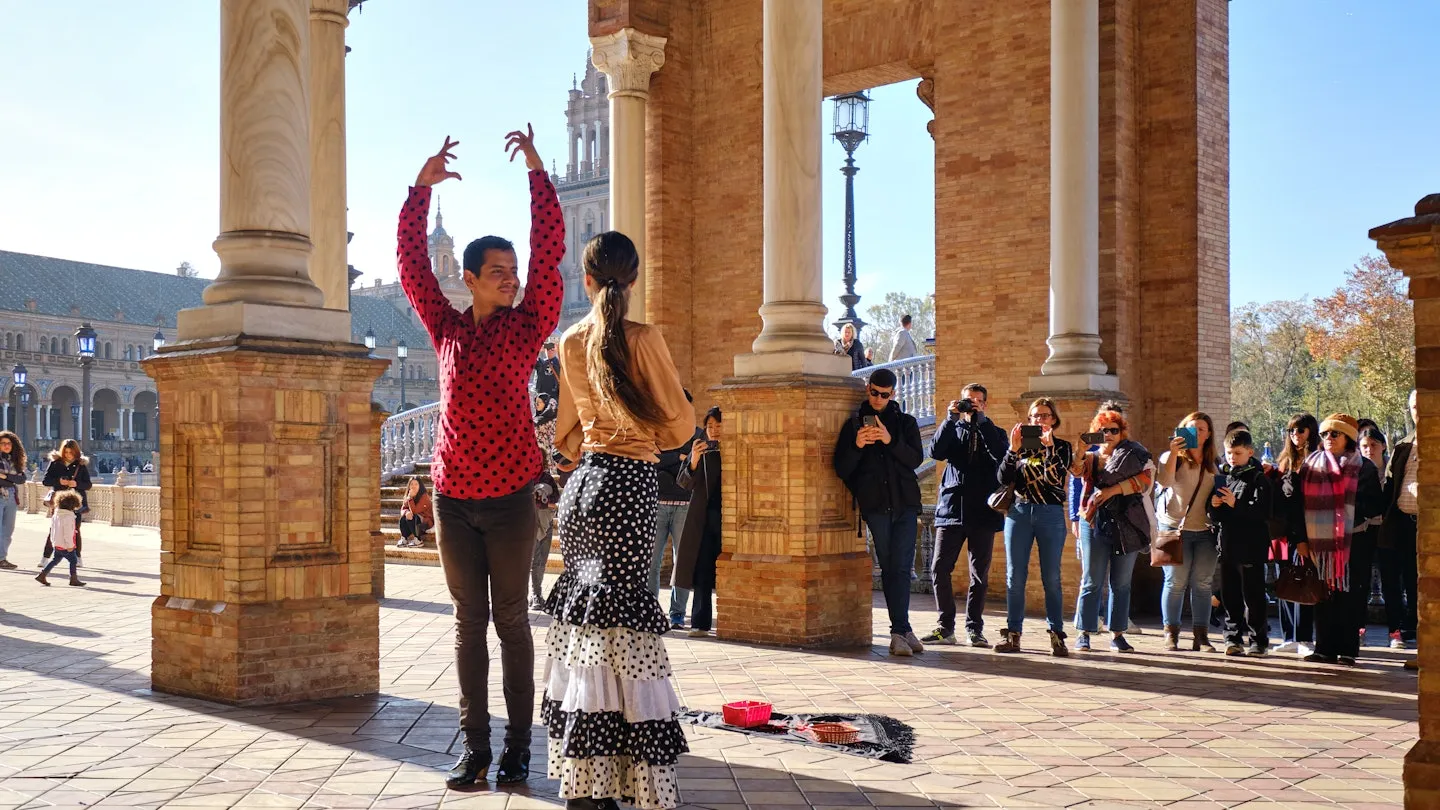
21. Discover Flamenco Literature at Librería Verbo
Flamenco’s impact extends into literature, with countless books exploring its history, philosophy, and artistry. Librería Verbo, a cozy bookstore in Seville, boasts an impressive collection of flamenco-related literature. From biographies of famous dancers to poetic works inspired by flamenco themes, there’s something for every enthusiast. Browsing these books provides deeper insights into the art form’s cultural significance. It’s also a great place to pick up a unique souvenir or gift for flamenco fans.
22. Take a Flamenco Guitar Lesson
For those fascinated by the intricate rhythms and melodies of flamenco guitar, Seville offers several opportunities to learn. Local guitarists often provide lessons for beginners, teaching techniques like rasgueado (strumming) and picado (fingerpicking). These classes are tailored to individual skill levels, making them accessible to anyone interested in this essential element of flamenco. Learning to play even a simple flamenco piece helps deepen your appreciation for the art form’s musical complexity.
23. Experience Open-Air Flamenco in Plaza de España
Plaza de España, one of Seville’s most iconic landmarks, is a popular spot for spontaneous flamenco performances. Surrounded by stunning architecture and scenic views, street performers often gather here to showcase their talents. These impromptu performances capture the essence of flamenco, emphasizing its raw, unfiltered passion. Watching flamenco in this open-air setting allows you to enjoy the art form in its purest, most accessible form.
24. Visit the Flamenco Research Center at Cristina Heeren Foundation
The Cristina Heeren Foundation is a prestigious flamenco school dedicated to preserving and promoting the art form. In addition to offering world-class training, the foundation hosts a research center with extensive archives on flamenco’s history. Visitors can explore rare recordings, photographs, and manuscripts that provide invaluable insights into flamenco’s evolution. It’s a must-visit for academics, enthusiasts, and anyone curious about the roots of this Andalusian tradition.
25. Attend a Flamenco Workshop at La Casa del Flamenco
La Casa del Flamenco is more than just a performance venue—it’s a hub for flamenco education. The workshops offered here cover various aspects of flamenco, from singing and dancing to percussion and guitar. Participants are guided by seasoned professionals who break down the techniques and emotions behind this art form. Joining a workshop is an immersive way to engage with flamenco and gain hands-on experience.
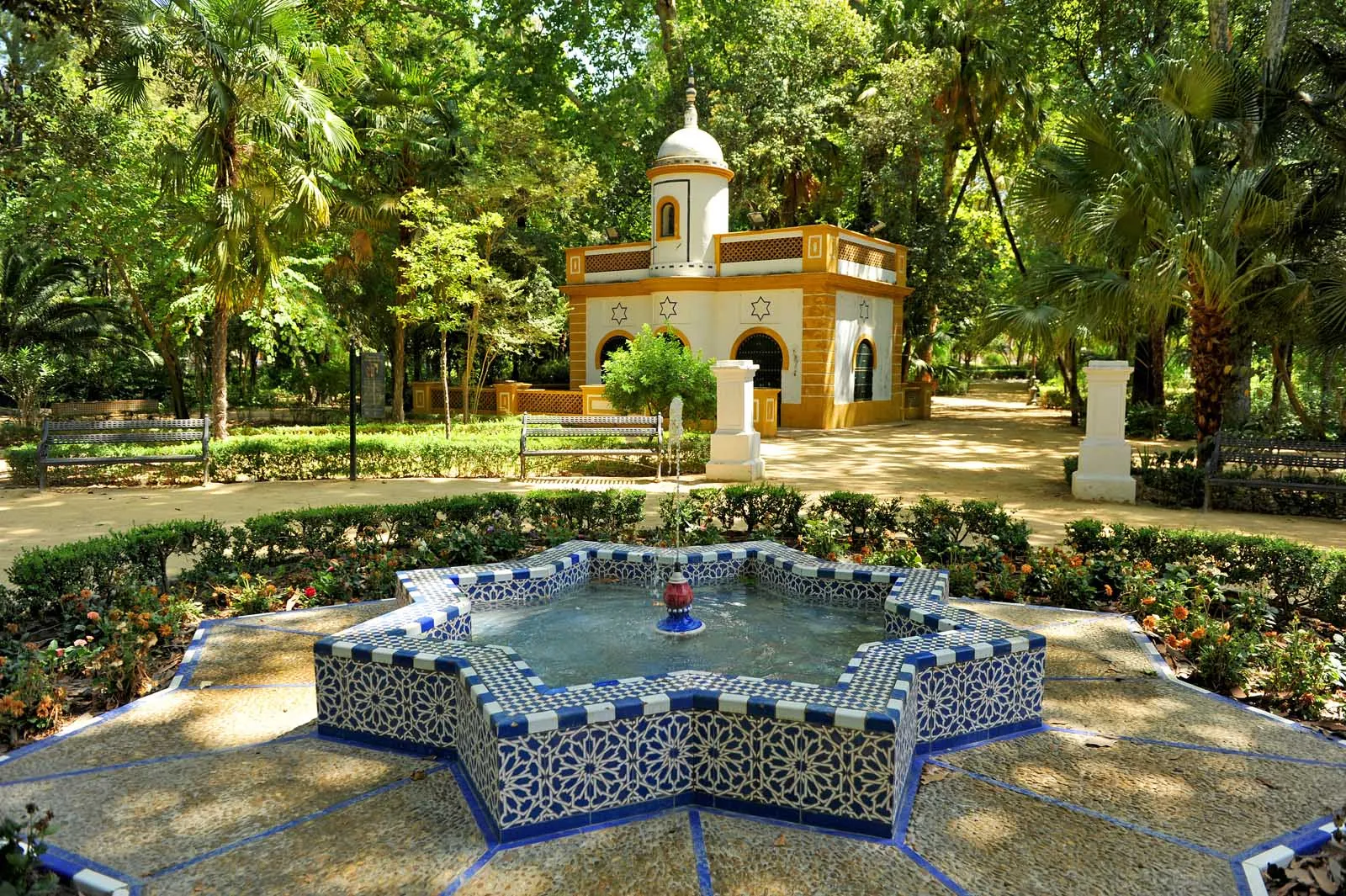
26. Watch a Children’s Flamenco Performance
Seville nurtures its flamenco heritage by encouraging the younger generation to embrace the art form. Children’s flamenco performances, often held at schools and cultural centers, showcase budding talent in an endearing and inspiring way. These events highlight how flamenco traditions are passed down, ensuring their survival for future generations. Attending a children’s performance offers a glimpse into the future of flamenco while celebrating its present.
27. Explore Flamenco-Inspired Street Art in Alameda de Hércules
The Alameda de Hércules neighborhood is known for its vibrant street art, much of which is inspired by flamenco themes. Murals depicting dancers, musicians, and scenes from flamenco performances adorn the walls, blending tradition with modernity. Walking through this area feels like an open-air gallery, celebrating Seville’s cultural roots. It’s a creative and unexpected way to connect with flamenco’s influence on contemporary art.
28. Enjoy Flamenco Poetry Readings at Café Central
Café Central, a cozy café in the heart of Seville, hosts regular flamenco-themed poetry readings. These events feature local poets and performers who use words to capture the rhythm, passion, and storytelling of flamenco. The combination of poetry and live flamenco guitar creates an intimate and moving experience. It’s an excellent way to explore the literary side of flamenco culture while enjoying a relaxing evening.
29. Visit the Flamenco-Themed Market at Mercado de Triana
Mercado de Triana, a bustling market in the heart of the Triana neighborhood, frequently hosts flamenco-themed events. Visitors can browse stalls selling flamenco-inspired items, such as traditional clothing, shoes, accessories, and artwork. The market also features live performances and workshops, creating a festive atmosphere. It’s a wonderful place to shop, eat, and immerse yourself in Seville’s flamenco culture.
30. Attend a Flamenco Singing Competition
Flamenco singing, or cante, is a cornerstone of the art form, known for its emotional intensity and powerful storytelling. Seville regularly hosts singing competitions that bring together talented vocalists from across the region. These events showcase the depth and diversity of flamenco’s vocal traditions, from sorrowful laments to fiery expressions of joy. Attending a competition allows you to experience the raw power of flamenco singing in its most competitive and passionate form.
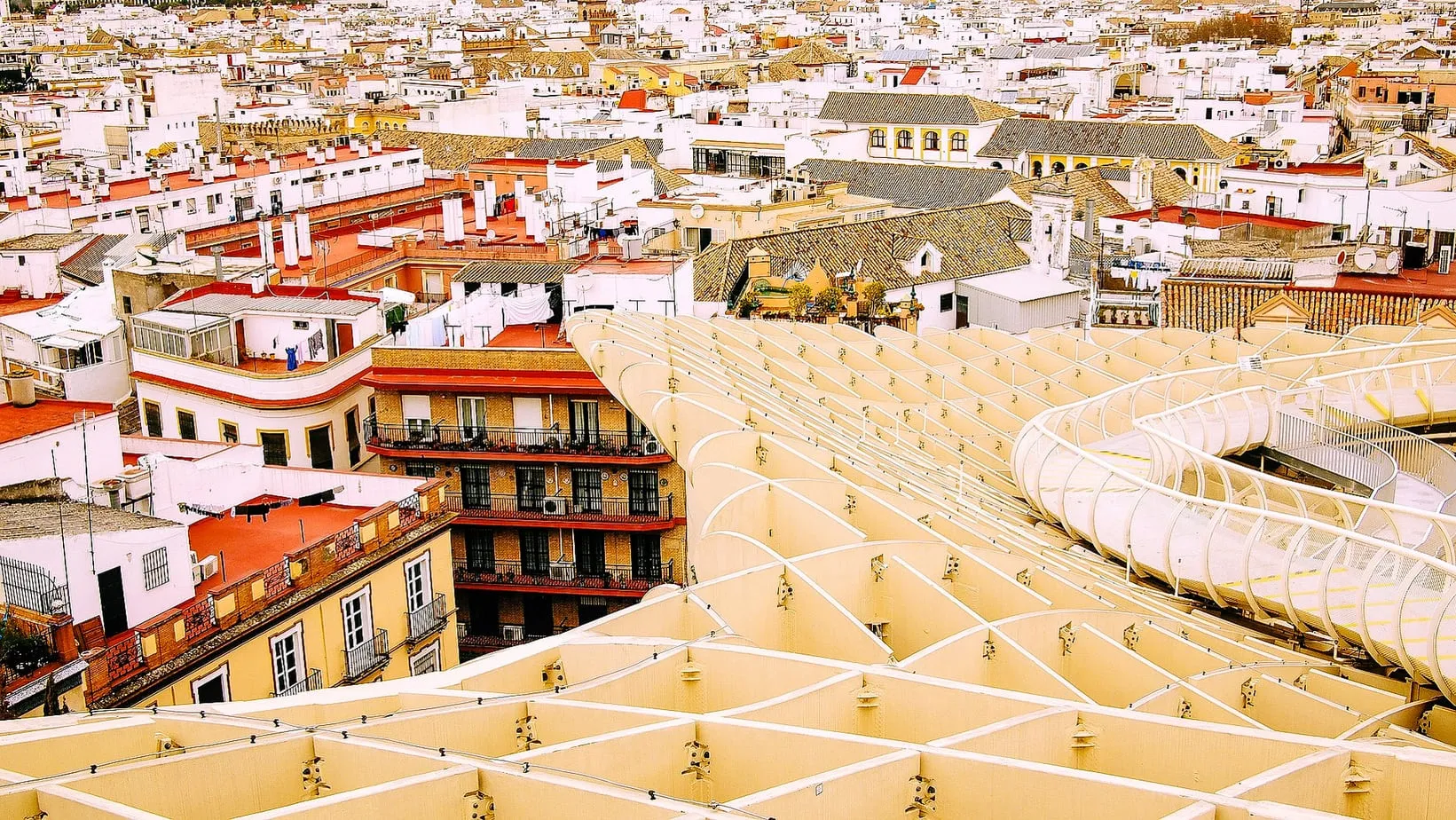
31. Visit the Real Alcázar for Flamenco Nights
The Real Alcázar, a UNESCO World Heritage site, transforms into a magical setting for flamenco performances on select evenings. These events combine the grandeur of the historic palace with the intimate artistry of flamenco. The performances often include top-tier dancers and musicians who create unforgettable shows in this stunning environment. It’s a rare opportunity to enjoy flamenco in a setting steeped in Andalusian history.
32. Learn the Art of Palmas at Taller Flamenco
Palmas, the rhythmic hand clapping that accompanies flamenco performances, is an essential skill in this art form. Taller Flamenco, a renowned school in Seville, offers specialized classes that teach the nuances of palmas. Students learn how to maintain complex rhythms and complement the dancers and musicians. Understanding the intricacies of palmas provides a deeper appreciation for the collaborative nature of flamenco.
33. Take a Flamenco Photography Tour
Seville’s vibrant flamenco scene is a dream for photographers. Guided photography tours take you to iconic venues, festivals, and street performances, offering opportunities to capture the art form in action. These tours are led by professionals who provide tips on lighting, composition, and timing to capture the emotion and energy of flamenco. It’s an engaging way to combine your love for photography with your appreciation of Seville’s culture.
34. Visit Flamenco Costume Exhibitions
Flamenco costumes are as much a part of the art form as the music and dance. Seville often hosts exhibitions showcasing traditional and contemporary flamenco attire, highlighting the craftsmanship and design behind these garments. Venues like the Cristina Heeren Foundation or local cultural centers frequently display collections of dresses, shawls, and accessories. Exploring these exhibitions offers insight into the visual elements that enhance flamenco performances.
35. Explore Flamenco Record Shops in Seville
For music enthusiasts, Seville’s record shops are treasure troves of flamenco recordings. Stores like Discoteca El Patio offer a wide selection of classic and modern flamenco albums, as well as vinyl records and rare compilations. Browsing these shops is a great way to discover legendary artists and take a piece of flamenco history home. It’s also a perfect activity for those who want to deepen their understanding of Flamenco’s musical legacy.
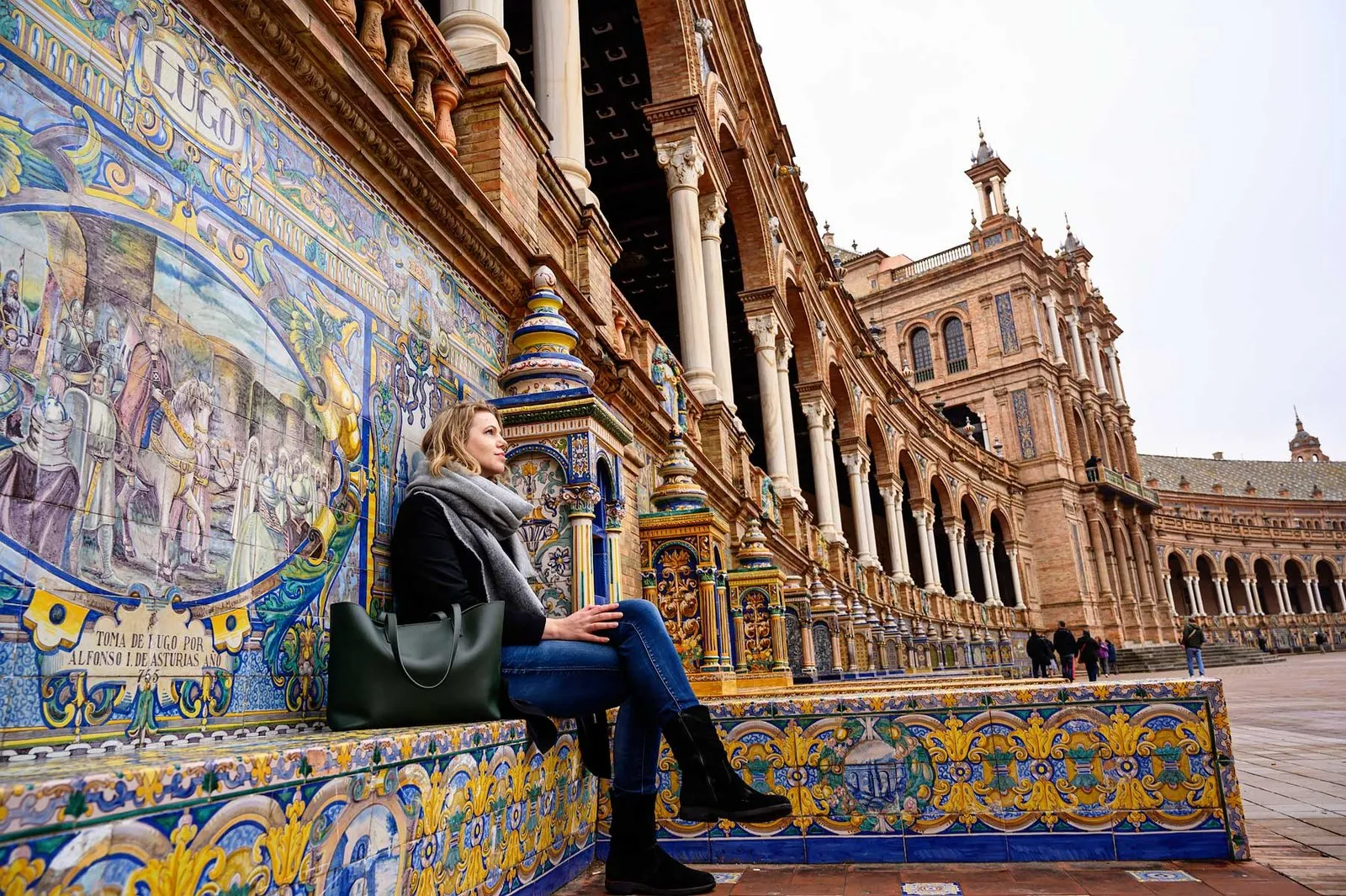
36. Witness a Midnight Flamenco Performance at Los Jardines del Cristina
Los Jardines del Cristina, a charming garden in Seville, occasionally hosts midnight flamenco performances under the stars. These intimate shows often feature some of the city’s most talented artists, creating a serene yet electrifying atmosphere. Watching flamenco in this tranquil setting adds a layer of magic to the experience, making it a must for late-night cultural outings.
37. Take a Flamenco-Inspired Yoga Class
Flamenco and yoga may seem like an unlikely pairing, but some studios in Seville have combined the two to create a unique experience. These classes use flamenco-inspired movements and rhythms to enhance balance, flexibility, and mindfulness. The sessions are designed to be both relaxing and energizing, offering a fresh way to connect with flamenco culture while promoting physical wellness.
38. Enjoy a Flamenco-themed boat Cruise on the Guadalquivir River
Seville’s Guadalquivir River offers a scenic backdrop for flamenco-themed boat cruises. These cruises feature live performances by dancers and musicians, blending the beauty of flamenco with the serenity of the water. Guests can enjoy traditional Spanish cuisine and drinks as they take in the show. It’s a memorable way to experience flamenco while admiring Seville’s landmarks from a unique perspective.
39. Learn Flamenco Singing Basics at Cante Workshops
Cante, the vocal element of flamenco, is known for its deep emotional resonance. Several workshops in Seville teach the basics of flamenco singing, focusing on breath control, phrasing, and expression. Participants are guided by experienced cantaores (singers) who share the secrets of their craft. Learning even the basics of cante gives you a newfound appreciation for the skill and passion behind flamenco’s vocal performances.
40. Experience Flamenco Fusion at Sala Cero Teatro
Sala Cero Teatro is known for its innovative performances that blend flamenco with other artistic styles. From contemporary dance and theatre to jazz and classical music, the shows here push the boundaries of traditional flamenco. This venue is perfect for those looking to explore the modern evolution of flamenco while enjoying a cosy and creative atmosphere.
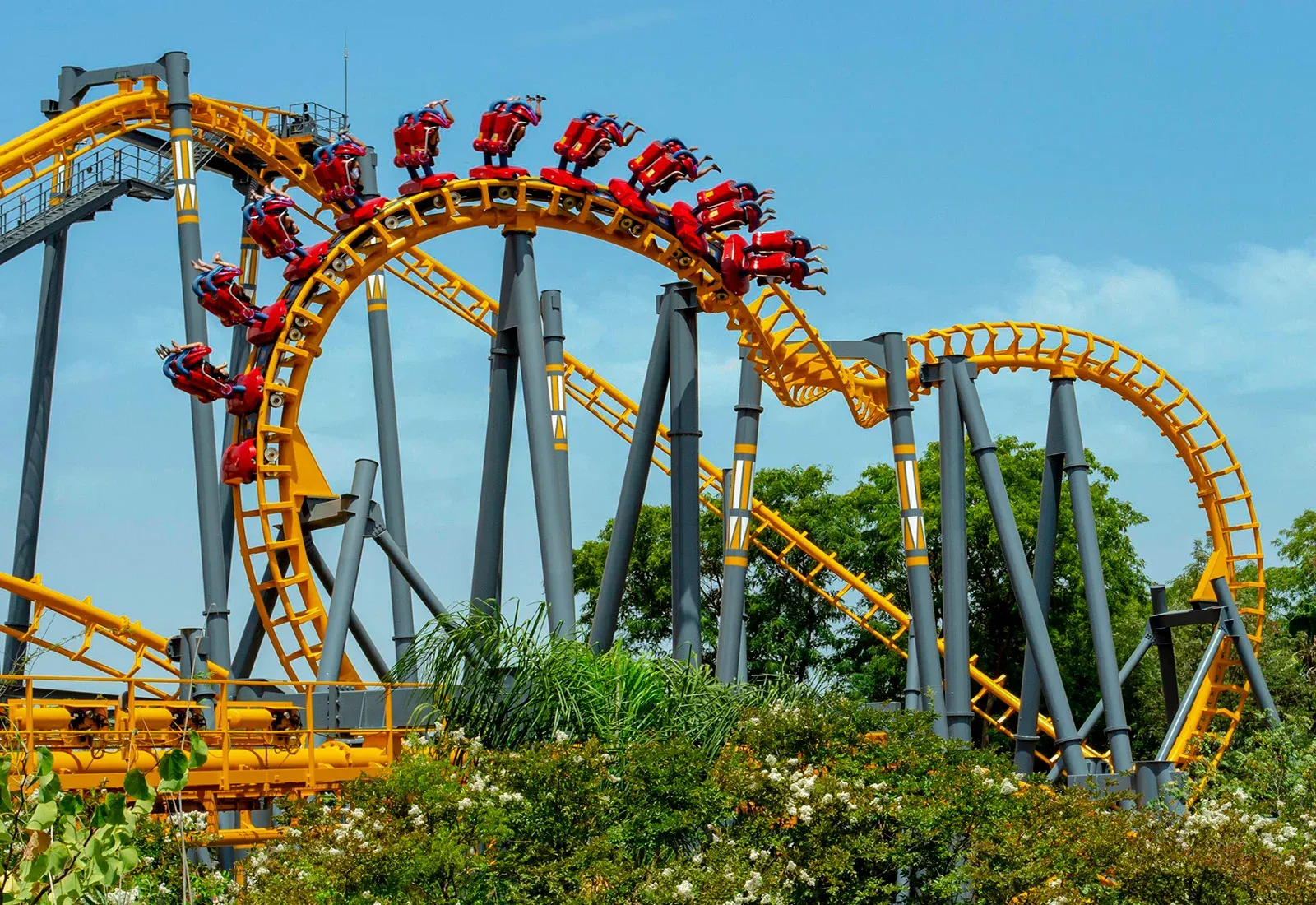
Seville is a city where flamenco transcends mere performance—it becomes a way of life. From the soulful rhythms of its music to the vibrant energy of its dancers, flamenco captures the essence of Andalusian culture. With 40 unique ways to experience this art form, Seville offers something for everyone, whether you’re a seasoned aficionado or a curious traveler exploring it for the first time.
Flamenco in Seville is more than entertainment; it’s an emotional journey rooted in history, passion, and artistry. From intimate performances in historic venues to workshops that let you step into the shoes of the artists, every activity deepens your connection to the art. You’ll find flamenco in grand theaters, quiet plazas, and even bustling markets, making it an integral part of the city’s daily life.
